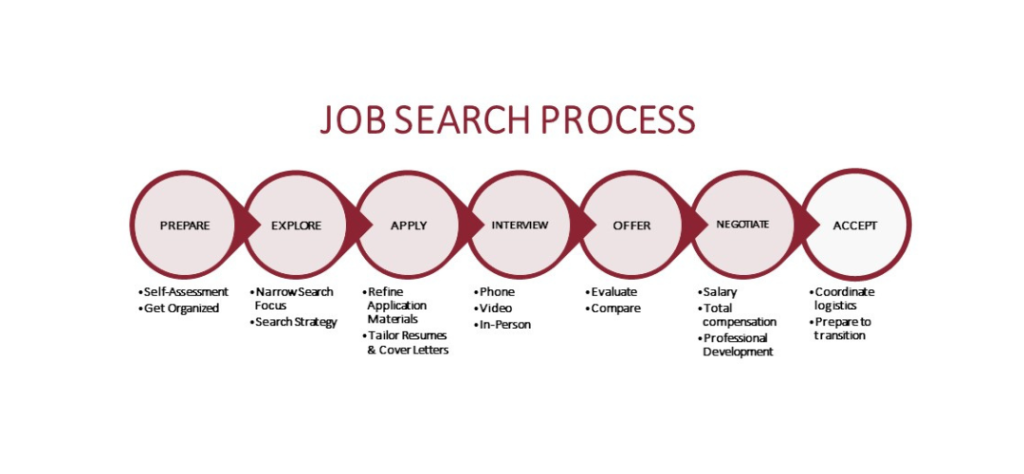
The transition from campus life to the corporate world is a pivotal moment in the life of every young professional. It’s a journey that is both exciting and challenging, filled with opportunities for personal and professional growth. This transition, often referred to as “Campus to Corporate,” involves adapting to a completely different environment, culture, and set of expectations. In this blog, we’ll explore the various aspects of this transition, from preparing for the change to thriving in the corporate world.
1. Preparing for the Transition
Skill Development in College:
In today’s competitive job market, a college education is a crucial stepping stone towards a successful career. While earning a degree equips you with a broad spectrum of knowledge, it’s equally vital to focus on skill development that directly aligns with your chosen field. This multifaceted approach ensures that you not only have the theoretical understanding but also the practical abilities to excel in your career.
Identifying Relevant Skills:
The first step in skill development during college is to identify the specific skills that are essential for success in your chosen field. For instance, if you’re studying computer science, programming languages, data analysis, and software development skills might be your top priorities. Alternatively, if you’re pursuing a career in marketing, skills in digital marketing, market research, and content creation could be your focus.
Additional Courses and Certifications:
Once you’ve pinpointed the skills you need, consider enrolling in additional courses or obtaining relevant certifications. These can complement your college curriculum and provide you with a more in-depth understanding of your chosen field. For example, if you’re majoring in business management, you might take courses in project management or obtain certifications in leadership and entrepreneurship.
Soft Skills Matter Too:
While technical skills are crucial, soft skills are equally important and should not be overlooked. These skills include communication, teamwork, problem-solving, time management, and adaptability. Employers often seek candidates who not only possess the required technical expertise but also have the ability to collaborate effectively, communicate ideas clearly, and manage their time efficiently.
Extracurricular Activities and Internships:
Skill development doesn’t occur only within the confines of a classroom. Engaging in extracurricular activities, such as clubs, student organizations, or volunteering, can help you develop leadership, teamwork, and communication skills. Additionally, internships provide invaluable real-world experience that allows you to apply and refine the skills you’ve learned in a practical setting.
Networking and Mentorship:
Building a network of professionals in your field can open doors to opportunities for skill development. Attend industry conferences, join online forums, and seek out mentors who can offer guidance and advice. These connections can help you gain insights into the specific skills that are in demand and provide guidance on how to develop them.
Adaptability and Resilience:
Lastly, adaptability and resilience are skills in themselves. The ability to embrace change and bounce back from setbacks is invaluable in any career. Developing a growth mindset and the capacity to learn from failures will serve you well throughout your professional journey.

2. The Job Search Process
Identify Companies and Roles:
Begin by identifying companies and job roles that align with your career goals and interests. Research industries, organizations, and positions that resonate with your skills and passions. Use online job boards, company websites, and professional networks like LinkedIn to explore opportunities.
Tailor Your Applications:
Tailoring your job applications is essential to stand out in a competitive job market. Customize your resume and cover letter for each position, emphasizing how your skills and experiences directly align with the job requirements. Show the hiring manager that you’ve done your homework and understand their needs. Preparing for interviews is crucial to make a positive impression and increase your chances of success.
Maintain a Positive Attitude:
Remember that job rejections are a common part of the job search process. Stay positive and resilient in the face of setbacks. Maintaining a positive attitude will help you stay motivated throughout your job search. If possible, reach out to the interviewers or HR representatives to request feedback on your interview performance. Constructive criticism can provide valuable insights into areas where you can improve, making you a stronger candidate for future opportunities.
In summary, the job search process involves careful research and tailored applications, thorough interview preparation, and resilience in the face of rejections. By approaching each step with determination and a commitment to improvement, you’ll increase your chances of securing a position that aligns with your career aspirations. Remember that every experience, including rejections, contributes to your professional growth and journey.
3. The Transition Phase
Corporate Culture:
Corporate cultures can vary widely from one organization to another. When starting a new job, be observant and adaptable as you learn the norms and values of your workplace. Pay attention to how colleagues interact, dress, and communicate. Understanding and fitting into the corporate culture can contribute to your success and job satisfaction.
Corporate cultures can vary widely from one organization to another. When starting a new job, be observant and adaptable as you learn the norms and values of your workplace. Pay attention to how colleagues interact, dress, and communicate. Understanding and fitting into the corporate culture can contribute to your success and job satisfaction.
Time Management:
Balancing work responsibilities with personal life can be challenging, but effective time management can make a significant difference. Establish a daily and weekly routine that includes dedicated time for work tasks, personal activities, and relaxation. Having a schedule can help you stay organized and maintain a healthy work-life balance.
Use time management techniques like prioritization to ensure that you focus on the most important tasks. Identify high-priority items and tackle them first, then allocate time to less urgent responsibilities. This approach ensures that you make the most of your work hours without feeling overwhelmed.
Building Relationships:
- Be Approachable:
Create an approachable and friendly demeanor. Smile, greet your colleagues, and engage in small talk when appropriate. Being approachable makes it easier for others to collaborate with you and fosters a positive work environment.
2. Open to Collaboration:
Be open to collaboration and teamwork. Offer your assistance when needed, share your ideas, and actively participate in group projects. Collaboration not only strengthens your relationships but also enhances your overall productivity.
3. Be a Good Team Player:
Being a good team player involves effective communication, active listening, and the ability to compromise. Be respectful of your colleagues’ opinions, contribute constructively to discussions, and be flexible when necessary.
Conclusion
In conclusion, the transition from campus to corporate life is an exciting and transformative journey. It’s a time to adapt, learn, grow, and develop into a confident and capable professional. By understanding and embracing the core principles of corporate culture, time management, relationship building, continuous learning, and work-life balance, you’ll not only navigate this transition effectively but also set the stage for a fulfilling and prosperous career ahead.The journey from campus to the corporate world is a significant shift, filled with challenges and opportunities.So to guide students in every aspect of students transition phase Peakin has come with exclusive programs to guide them throughout their personal and professional life.
